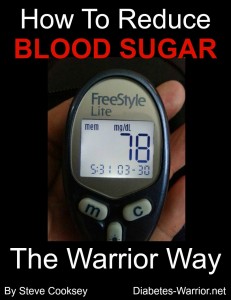I review a lot of articles and studies involving diet, nutrition and diabetes. Many of them do not pass the ‘smell test’? In other words, the article or study appears to be tainted by bias, money or both. I’ll show you one study that fails the ‘smell test’.
- I’ll explain how to dissect a nutritional study.
- Look at one study that… failed the smell test.
The best way to self-treat diabetes and to achieve lasting weight loss in my opinion, is with a low carb paleo meal plan like this one, “A Meal Plan You Can Live With“. The outcome of the study that we will dissect below appeared to be contrary to a ‘low carb paleo’ approach, so I investigated.
It is so easy for people to be fooled by charlatans and con artists… and in this context I’m referring to ‘researchers’ bought and paid for by Big Food, Big Pharma and the Medical Industry. The study we will look at below is an easy one to dissect, if you dig deep enough.
Dissecting a Study
The main things I look for when dissecting a study.
- Ancestral Prism – As I read the nutritional claims of a study or article, I peer at the data through an ‘ancestral prism’. In other words, in an ancestral context, does the study make sense? This can be tricky for sure.
- Research the Researchers – here I’m primarily looking at their research history, current and past employment. Do the researchers have a historical bent or bias? Have they taken money from Big Food, Big Pharma or the Medical Industry either for research or for employment?
- Who’s Funding the study. If companies or industry trade groups fund studies, rarely will a published study go against those paying the bills. If a study does not support those funding the study, often times the study will go unpublished.
Snacking Reduces Risk of Obesity?
This study claims, ‘between meal snacking’ is associated with reduced risk of being overweight and a reduced risk for abdominal obesity. By the way, this so called study doesn’t pass the smell test, and I’ll show you why I make that claim.
As we look at this study, keep two things in mind…
- This pathetic study has been cited at least (5) times in other studies. In other words, bad science is being used to support other bad science.
- The Medical Industry uses harmful studies like this to support their claims that people, including diabetics should eat 4-6 smaller meals a day. The advice is wrong, it’s harmful… and ‘fake science’ like this study is used to support it.
Ancestral Prism and Snacking
Attempting to analyze nutrition, peering through the ancestral prism is a tricky proposition. However, I feel pretty confident in saying the study results don’t make sense from an ancestral perspective.
Humans were not designed to snack throughout the day. It doesn’t makes sense that snacking in between meals would lead to a reduced risk of being overweight or being fat.
The results of the study didn’t seem reasonable… so I investigated further.
Research the Researchers
My first step when dissecting a post that doesn’t pass the ancestral perspective is to ‘research the researchers’.
Let’s look at those who were doing the research for this pro-snacking study.
Lead Researcher, Debra Keast.
You will see that she has been involved with several studies promoting RTECs (ready to eat cereals) for breakfasts. This alone is not damning but her career has consisted of promoting cereals and a low-fat, high-carb agenda. She too is likely to have been the beneficiary of Big Food money funding her studies.
It’s not very likely that she will suddenly switch gears and find that between meal snacking is harmful.
Conclusions From Keast’s Work
“RTEC [Ready To Eat Cereal] should be encouraged as a convenient, low-fat, nutrient-dense breakfast option.”
Steve Note: Ready to eat cereals (Frosted Flakes, Raisin Bran, etc are not suitable for human consumption in my opinion. If you want to fatten hogs for slaughter, or humans for that matter… go ahead.
“The substitution of whole grain for a specific proportion of refined grain ingredients of commonly consumed foods increased whole-grain intake and reduced disparities between demographic subgroups of children and teens.”
Steve Note: Neither refined grains nor whole-grains are healthy, certainly not in the forms of store-bought breads, cakes, cookies, pasta, nor cereals.
Researcher Theresa A Nicklas
She is the author of the American Dietetic Association position paper on “Dietary Guidance for Healthy Children Ages 2-11 years” and served on the 2005 US Dietary Guidelines Advisory Committee. … she is neck deep in the “low fat, high carb” experiment that we have been experiencing. Do you think she is an objective researcher???
Do you expect her to go against her previous documented work??? Hardly. She also shares studies with Keast and our 3rd researcher, O’Neil.
Researcher Carol E O’Neil
O’Neil and Nicklas have worked together in addition to this study and both have received money from Big Food companies and groups, including the National Confectioners Association. Read this Associated Press story implicating both Nicklas and O’Neil in producing studies, even editing the conclusions of the studies as directed by the funding groups, including the National Confectioners Association.
Biased Researchers
All three have benefited from Big Food money.
All three have been on record supporting the LOW FAT, HIGH FIBER, HIGH CARB food pyramid that has created an epidemic of obesity and diabetes ….for 40 years. Do you think they will walk away from that??
If they had integrity they might and if the same forces supporting the previous studies were not supporting this study, maybe. As we’ll see in the next section, the same ‘forces’ are promoting this study.
Funding and Supporters of the Study
Before we list the groups who funded this study, I want you to feel assured.
The money paid to the researchers in no way influenced the outcome of the study and the authors of the study had no conflict of interests.
How do I know this? … the researchers told us of course.
“The funding sources had no input in the design, implementation, analyses, or interpretation of the research. None of the authors had a potential conflict of interest.”
Funders
This is a screen capture from the study.
To find the groups funding the study, you actually have to go to the ‘Full PDF‘ version, this information isn’t listed in other versions of the study.
Let’s look at this list.
- US Department of Agriculture – not an unbiased group since their “food pyramid” is responsible for much of the obesity and diabetes. The US Department of Agriculture promotes a low-fat, grain-based ‘diet’… that supports sugar and grain companies.
- USDA HATCH Project LAB 93951 – just for fun some time, Google “USDA Hatch Project LAB 93951”. This USDA program funded pro-candy research!! … I kid you not. Here are just a couple of links. Also note, Nicklas and O’Neil were the recipients on other studies funded by this entity. Also note, the National Confectioners Associations also co-funded with the USDA Hatch Project… disgusting!
- Frito-Lay Inc. – a snack company and subsidiary of a top tier Big Food world wide conglomerate. Frito-Lay, supporting a “study” on … snacking and weight loss?! Not a conflict of interest?
I wish I was making this up… follow the links yourself.
Researchers who have had their hands in the “cookie jar”, who support the current status quo… producing a study paid for in part by Frito-Lay (a snack food company and subsidiary of PepsiCo).
So… given all the evidence… does this pass YOUR SMELL TEST?
This is why you can NOT “just read headlines” You must dig deeper.
Lower Your Blood Sugar Naturally
If your blood sugars are elevated and you cannot achieve truly normal blood sugars with diet alone…
BUY MY BOOK! How to Reduce Blood Sugars.



Great post Steve!!
For every study I read, the first thing I look at is the funding. Seeing Frito-Lay, I may not even have taken the time to read this one. I need to do more homework on the “researchers” in my future reading. Thank you!
Agreed! First glance is the funding. Then if it passes that test, a quick copy and paste of the researchers in google… a trend is typically easy to see…. USDA, FDA, NIH, America CornStalk Suckers Assn…. ok… I made that up. :)
Thanks for an insightful post. We do need to take personal responsibility when reading these ‘studies’ and make sure there is truth behind it and integrity behind the ‘researchers’.
Gia :)
Thanks Gia! I do appreciate the feedback. I’m sure you know… you read and wonder HOW CAN ALL THIS research contradict each other….. uh huh…. :)
Thank you for a great post. I think I’m going to take the time and investigate a couple of crazy studies/ news articles I have seen lately, to name a few “burgers and statins” and “fat in the diet causes respiratory allergies.”
This was a diet recall study done in adolescents. I think the only thing it may show is that the heavier a person is, the poorer the recall concerning the number of snacks they ate that day.
I am sure Frito Lay likes it and will probably use it in an advertising campaign.
Great point Anne, thanks for the input…. the smell is sooo bad now, I may have to delete the post entirely. :))
You are welcome …thanks. :) OFTEN when I see a “fat is bad” study… they are not separating the fats, hydrogenated veggie oils are lumped in with Sat Fat … OR they didn’t mention the fat was eaten with bread, pasta, fries, rice etc…. just poorly designed studies.
Unless… the studies were designed to prove the status quo. :(
Pingback: Vilest Villain? American Society of Nutrition - Diabetes Warrior
Pingback: Proof of Anti-Low Carb Bias in Nutrition | Diabetes Warrior